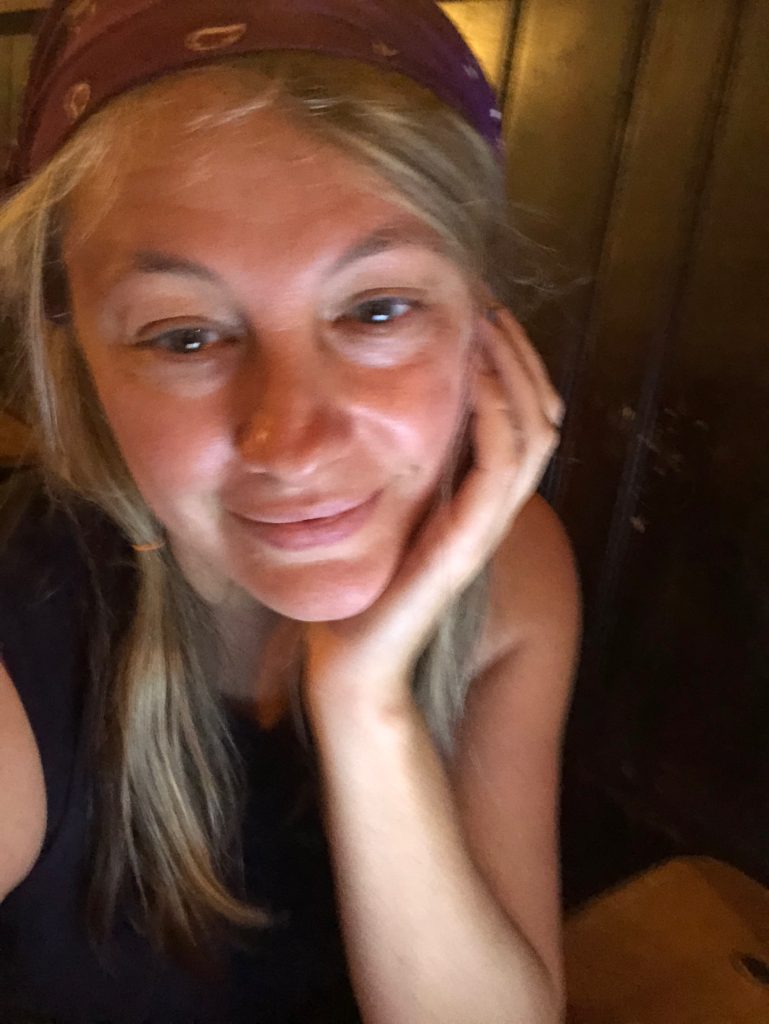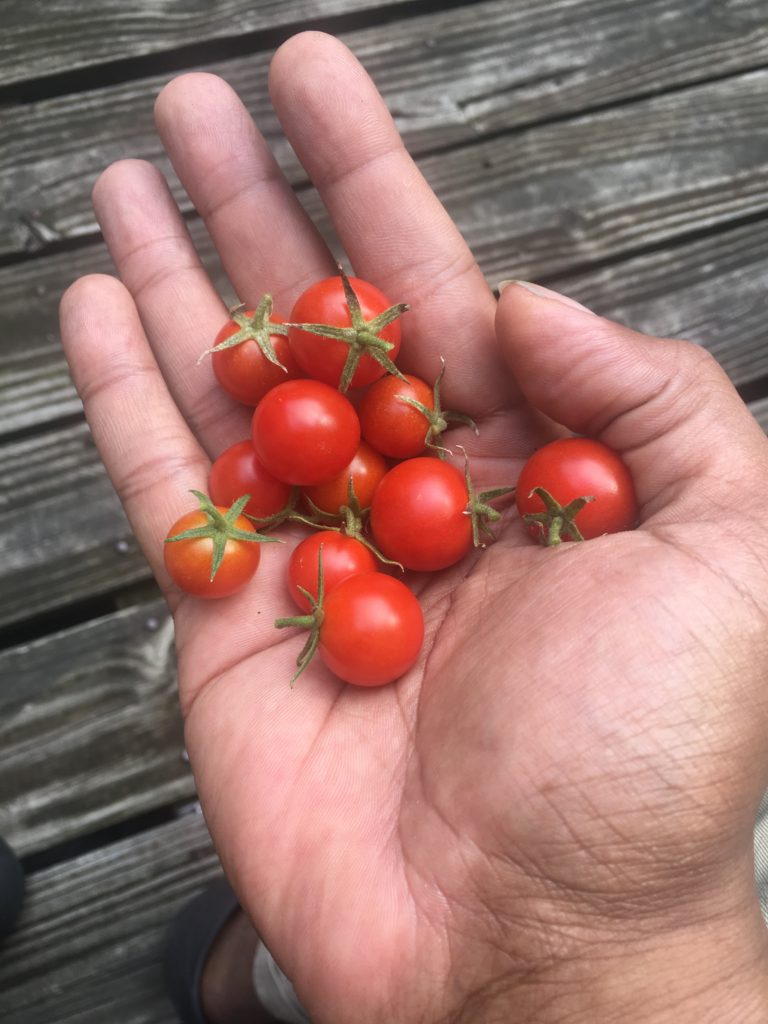“Science? Magic? God? That power flows from within. From inside. What comes out when that pressure is heaviest? That’s the real magic. That’s what defines being a hero.”-Luke Cage
Someone should really make a documentary about me called The Bad Jew. Last year for Yom Kippur I ate lobster rolls. That’s like double traif. This year I’m at Marlow and Sons–perched on the edge of Jewish Williamsburg, no less–and I’m wolfing non-Kosher chicken salad with non-Kosher wine. Blame the shiksa in me. Gypsy blood! my grandmother would shriek when she was feeling especially resentful my father had married a six-foot blonde gentile. Whatever the cause, ever since I formally hung up my anorexic spurs I’ve had a hard time fasting. This year I made it to 1pm.
To some degree, I feel bad about my lapses. And more earnestly, I feel bad about a lot of ways I’ve been hurtful. About biting things I’ve said and promises I’ve not kept and people with whom I’ve not stayed in touch. For the first two categories of sins, I always apologize. But I’ve yet to atone for my unplugging. I believe the kids call it ghosting.
I go back and forth on how egregious ghosting is. On one hand, I grew up in a 1970s Jewish liberal town where everything was talked to death and little peace was achieved. On the other hand, I regard bothering to discuss a conflict with someone as an act of love and faith. I have to trust that I’ll be heard and that the issue is local enough that dialogue can rectify it. Otherwise such exchanges devolve fast into character assassination. The flip side of my intuition is a perceptiveness that can cut like a knife.
B and I can fight with each other. Rachel and I can, too. There are others with whom I can fight healthfully but a prerequisite seems to be that we aren’t invested in fighting so much as we are in each other–that we argue with the shared goal of ending up somewhere kinder and clearer than we started. I no longer bother to fight with people whose goal is to win rather than to achieve a greater mutual understanding. That’s violent.
It goes without saying I grew up in a bloodbath of name-calling and punch-throwing and door-slamming. I participated, don’t get me wrong. I was pissed off for roughly 18 years. But now, when I like someone but don’t necessarily feel comfortable or safe with them, I keep my beefs to myself. Sometimes that gets ugly.
Sometimes I ghost.
The blowups are terrible and I always apologize for them–they usually occur when I’ve cathected to someone who hasn’t cathected back, or when the other person forces a confrontation. Sometimes I’ll tell off a badly behaved stranger or colleague, given what an etiquette avenger I can be (and that I’m the ancestor of Rubenfire.)
But I’m still not sure how bad ghosting really is.
I view the first two years of knowing someone as a mere fact-finding mission. Every relationship, whether romantic or platonic, entails a dating period that’s both trial and a honeymoon. That’s when you learn if your incompatibilities loom too large, and how close you can be without driving each other mad.
A reverend friend says that every relationship has an inherent dealbreaker. The trick, he says, is to decide whether you really want the deal to be broken. In rare cases in my life, the answer is no. For while it’s magic to share chemistry with someone, it’s a rare and profound joy when you commit to honoring that chemistry. This doesn’t mean I have no friends. This means I’m so grateful for the people with whom I’ve built that bond, and I’ll do anything for them. This also means I know a lot of people with whom I don’t bother to fight. And sometimes
sometimes
this means I lose an intimacy I once shared.
I’ve been thinking about this as I’ve been munching on this delicious traif. Wondering to whom I owe apologies today and whether proffering them would cause more harm than good. For the most part, I stopped spending time with these people not because I didn’t see what was endearing and admirable about them. I stopped reaching out—with the exception of those infernal social media hearts and likes–because I don’t want to expend precious time and money on social exchanges borne of obligation rather than affection. For me a disconnect doesn’t happen with people with whom I have the occasional coffee or walk. Sometimes it happens when a friend and I are at incompatible stages of development, in which case I hold space for them in my heart if not my calendar. And sometimes It happens with people with whom I’ve gotten too close given the limitations of our bond.
What do you say in those instances? Hey, I’m sorry I disappeared but I couldn’t stomach our phony dynamics anymore?
You can see why I’m well acquainted with loneliness.
The truth, and I suspect this is more common than is acknowledged, is that I love but do not like a lot of people. With most humans, the closer I am to them, the harder it is to sustain good will. This is not because I think I’m great and others are awful. It’s because true resonance is a very elusive thing, and I can handle the loneliness of solitude far more than I can handle the loneliness of people missing each other by a mile.
Hence I’m writing rather than worshipping with others on this disturbingly hot Yom Kippur. Hence I am sending love in general rather than apologizing to anyone in particular. Because while I know I’m terribly imperfect, I’m not sure if my willingness to step away from relationships that aren’t working is a flaw so much as a fact. K. and I always say that if you’re willing to walk away from your own tribe, you can walk away from anyone else. But, he points out, it also makes you more susceptible to other unhealthy attachments. It’s worth mentioning that he and I worked hard on figuring out how to know each other when it became clear our mutual attraction wasn’t going to bloom as a romance. Sometimes I think the best friendships develop when two people evolve out of their initial social contract. Though they’ve disappointed each other, they recognize the relationship is worth salvaging in some form–that they’re keepers, essentially.
Anyway, part of adulthood is accepting you’re not going to like everyone and not everyone is going to like you. And an even bigger part is learning how to live with yourself when you’re not likable. I can’t do that for you anymore than you can do that for me. I can only work on myself so that in the future I don’t develop closeness that is based on need rather than gracious, grateful choice.
I’ll say this: You are each and every one of you beautiful precious beings who deserve love and whose self-reckoning and joy I support from here. I’m sorry for all your un-useful pain–some pain is so useful I can’t regret it–and I’m especially sorry when I inflict it.
But atonement doesn’t require one day. It requires every day, ideally in the form of self-reckoning rather than needless processing that will hurt someone’s feelings more than it will assuage your guilt. And all this requires calories–most of which apparently are not Kosher.
The Bad Jew is coming soon to theaters near you.



